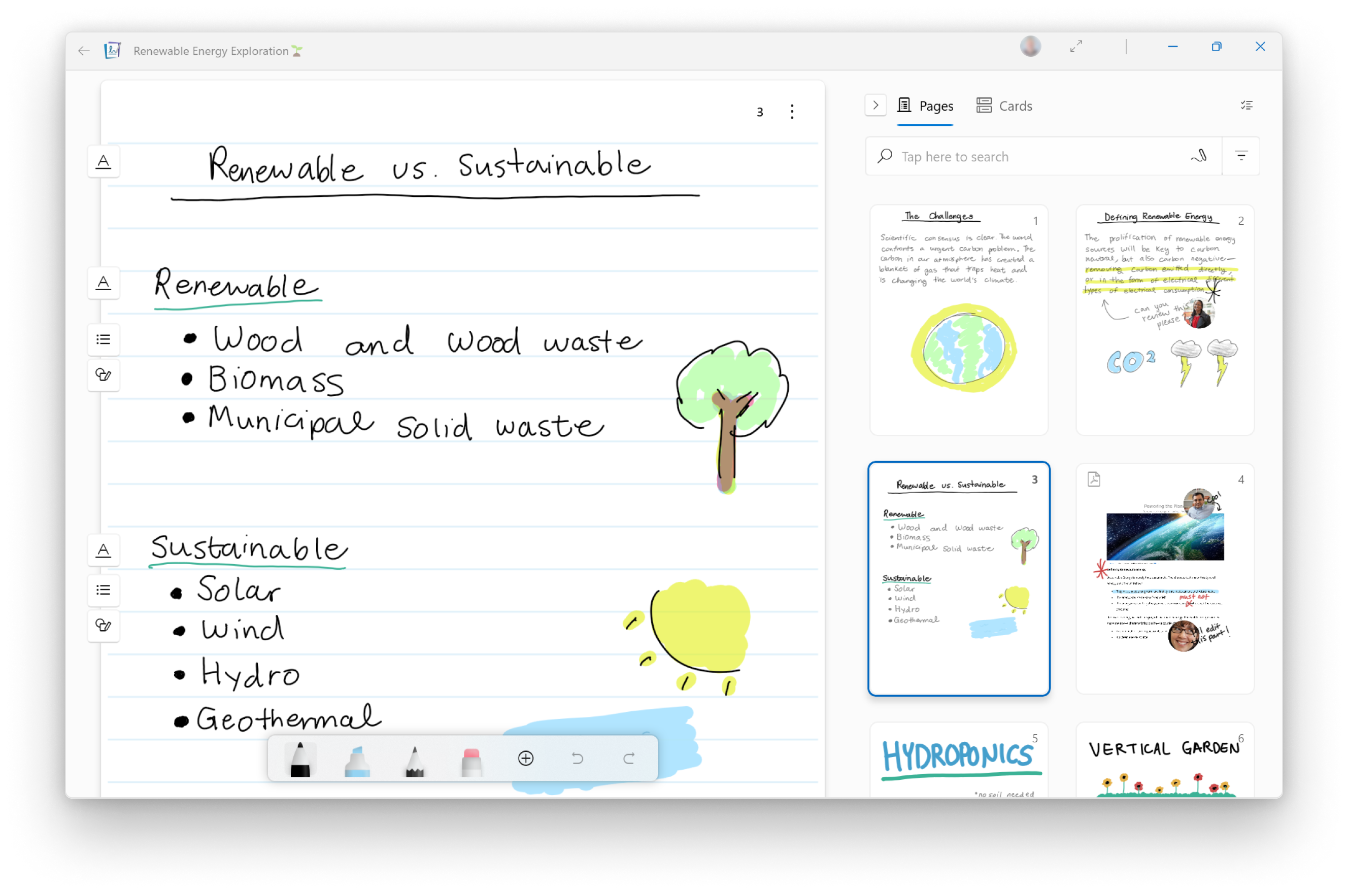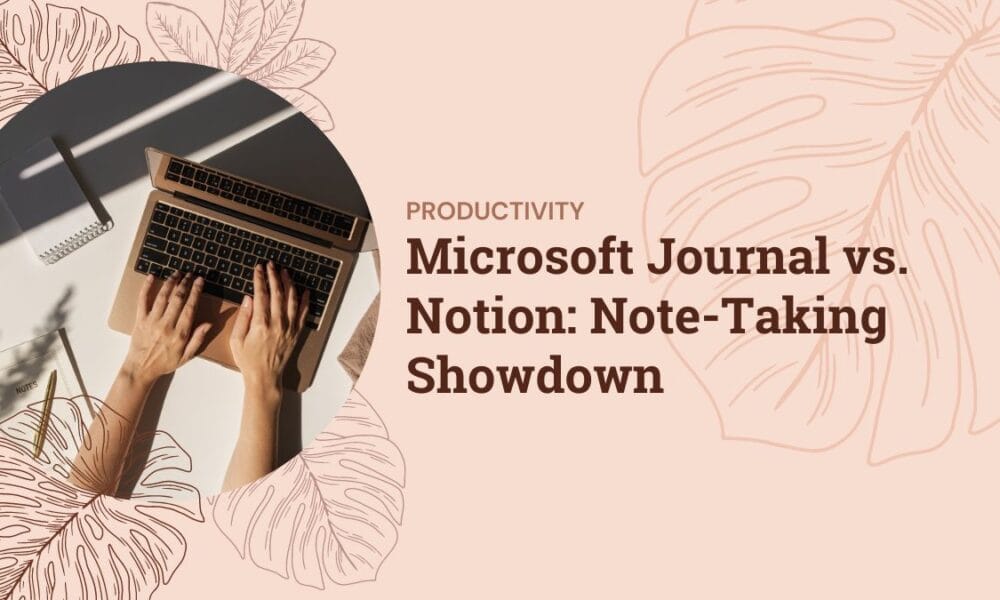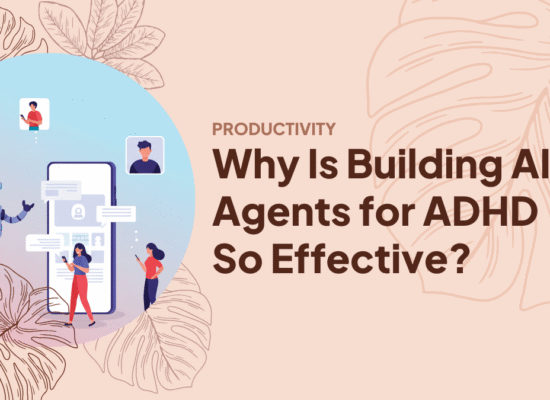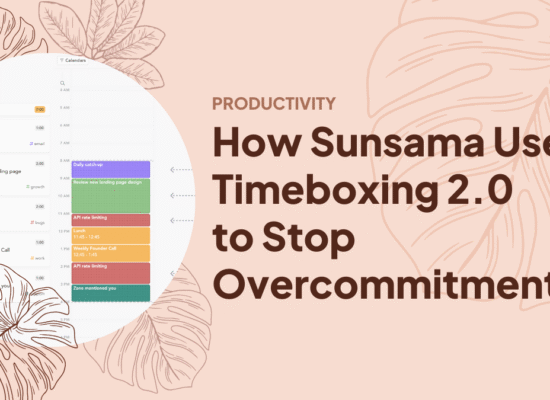Table of Contents
Efficient note-taking is more important than ever. With a plethora of tools available, choosing the right app can be a challenge, especially for neurodivergent individuals who may have specific needs. Two popular contenders in this space are Microsoft Journal and Notion. This blog aims to compare these two note-taking apps, focusing on their suitability for neurodivergent users.
Microsoft Journal: An Overview

Microsoft Journal is designed for those who cherish the tactile feel of pen and paper but in a digital format. It’s an app that truly shines for users who prefer handwritten notes, offering a seamless and natural writing experience. With its pen-centric approach, users can effortlessly jot down ideas, sketch, and annotate.
Key Features:
- Natural Writing Feel: Microsoft Journal’s ink technology mimics the fluidity of writing on paper, making it ideal for those who favor handwriting.
- AI-Enhanced Ink Analysis: This feature intelligently recognizes and organizes handwritten text, aiding in easier retrieval and organization of notes.
- User-Friendly Interface: The app’s layout is straightforward, reducing cognitive load, which is particularly beneficial for neurodivergent individuals who might find complex interfaces overwhelming.
- Accessibility: Its design is particularly advantageous for users who find typing challenging, offering an alternative that’s both intuitive and comfortable.
Notion: An Overview

Notion stands out for its remarkable versatility and customization capabilities. It’s more than just a note-taking app; it’s a comprehensive workspace that adapts to the user’s needs, whether for personal use, education, or professional projects.
Key Features:
- Expansive Customization Options: Users can tailor their workspace with various templates and tools, making Notion highly adaptable to different styles of learning and organizing.
- Project Management and Collaboration: Notion excels in collaborative features, allowing teams to work together seamlessly. This can be particularly useful for neurodivergent individuals who thrive in structured, collaborative environments.
- Database and Knowledge Management: The ability to create and manage databases makes Notion a powerful tool for organizing complex information, beneficial for those who need structured and detailed note-taking systems.
- Integrative Learning and Working: Notion supports a range of functionalities from simple note-taking to complex project planning, catering to diverse cognitive styles and needs.
Quick Tabular Comparison between Microsoft Journal vs. Notion
| Feature | Microsoft Journal | Notion |
|---|---|---|
| Writing Experience | Natural, pen-based input | Typing and structured input |
| User Interface | Simple and intuitive | Highly customizable |
| Primary Use | Handwritten notes and sketches | Project management, databases, and collaboration |
| Special Features | AI-enhanced ink analysis | Extensive templates and integrative tools |
| Ideal For | Individuals who prefer handwriting | Users seeking comprehensive organizational tools |
| Accessibility | User-friendly for non-typists | Adaptable for various cognitive styles |
| Collaboration | Limited | Extensive collaboration features |
Comparative Analysis: Strengths and Weaknesses
The showdown between Microsoft Journal and Notion reveals distinct strengths and weaknesses tailored to different user needs.
Microsoft Journal: Strengths and Weaknesses
- Strengths: Offers a natural handwriting experience, beneficial for those who prefer traditional note-taking methods. The AI-enhanced ink analysis aids in organizing and interpreting handwritten notes.
- Weaknesses: Lacks the extensive organizational tools and collaborative features found in Notion. It’s more suited to individual use than team projects.
Notion: Strengths and Weaknesses
- Strengths: Highly versatile and customizable, ideal for detailed project management and collaboration. Its extensive template library caters to a wide range of needs.
- Weaknesses: The vast array of features can be overwhelming for some users, especially those who prefer simplicity.
User feedback and expert opinions often highlight these differences, with preferences varying based on individual requirements.
Neurodivergent-Friendly Features
- Microsoft Journal: Its simplicity and focus on handwriting can be soothing for neurodivergent individuals who find typing challenging or prefer a more tactile approach.
- Notion: The ability to customize the workspace and organize content in various formats can be highly beneficial for neurodivergent users who require structured systems.
Both tools offer unique features that cater to different aspects of neurodivergence, like customization and ease of use. Microsoft Journal provides a more sensory-friendly interface with its handwriting focus, while Notion offers more organizational control.
The choice between the two frequently depends on the specific needs and preferences of the neurodivergent individual.
Note-Taking Efficiency for Neurodivergent Individuals
Both Microsoft Journal and Notion offer unique advantages for neurodivergent individuals in note-taking, each aligning with different aspects of neurodiversity.
Microsoft Journal’s Contribution
- Ideal for users who find solace in the physical act of writing.
- The app’s intuitive design minimizes distractions, aiding concentration.
- Real-world application: Users with ADHD have noted the calming effect of handwriting in the app, helping them focus better on the task.
Notion’s Role
- Offers a structured, customizable environment for organizing thoughts.
- Useful for users who thrive in highly organized setups.
- User experience: Individuals with Autism Spectrum Disorder appreciate the ability to create detailed, hierarchical notes, which helps them process information in a manageable way.
Conclusion: Microsoft Journal vs. Notion
In this note-taking showdown between Microsoft Journal and Notion, we’ve delved into the unique attributes and efficiencies of each app, especially in the context of neurodivergent individuals.
Key Takeaways:
- Microsoft Journal excels with its intuitive, pen-based interface, offering a more tactile and distraction-free experience for users who prefer handwriting.
- Notion stands out with its extensive customization and organizational capabilities, ideal for those who require structured and detailed note management.
Recommendations:
- For those who find solace in handwriting and require a minimalist, intuitive interface, Microsoft Journal is the go-to choice.
- Notion is recommended for users who need a comprehensive, customizable, and collaborative tool for managing complex information and projects.
We encourage readers to share their experiences and feedback on using these apps, helping others in the community navigate their decision based on diverse needs.







No Comment! Be the first one.